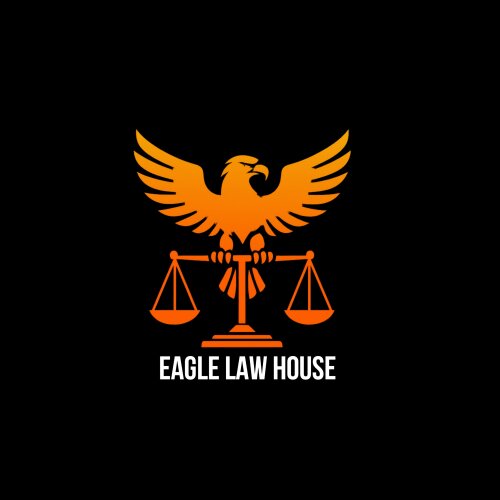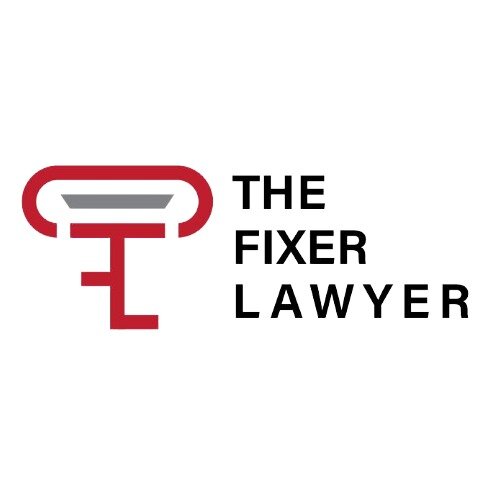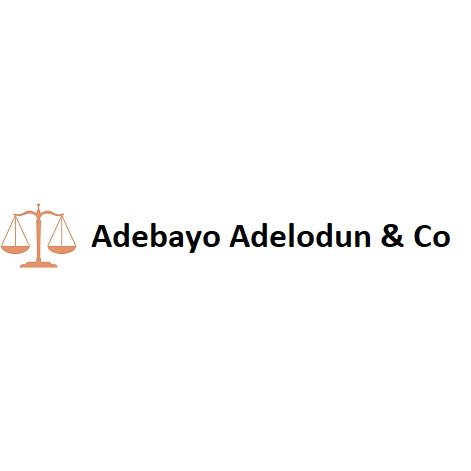Best Landlord & Tenant Lawyers in Abuja
Share your needs with us, get contacted by law firms.
Free. Takes 2 min.
Free Guide to Hiring a Real Estate Lawyer
List of the best lawyers in Abuja, Nigeria
Nigeria Landlord & Tenant Legal Questions answered by Lawyers
Browse our 27 legal questions about Landlord & Tenant in Nigeria and read the lawyer answers, or ask your own questions for free.
- About rent increament
- I was given 2 months and 28 days notice of increament of rent , I refused to pay and I was given 7days quit notice , my rent was increased by 50%
-
Lawyer answer by CO-dunni Law Solicitors
Although this increase is unconscionable, the 7days notice is valid if your rent has expired. Unless you have an alternative arrangement for accommodation. I suggest you find go and negotiate with your Landlord.
Read full answer - My house rent is expiring on march 28 next year and my landlord gave me quick notice to vacate the property on march 28 . My question is by Imo state Nigeria law is he not supposed to give me time to vacate to vacate after my rent is due
- My house rent is expiring on march 28 next year and my landlord gave me quick notice to vacate the property on march 28 . My question is by Imo state Nigeria law is he not supposed to give me time to vacate to vacate after my rent is due
-
Lawyer answer by CO-dunni Law Solicitors
There are several gaps to your question, first you did not mention the date on the Notice, another you did not mention the type of tenancy, whether it is a yearly Tenancy or a bi-annual Tenancy. The Notice to Quit...
Read full answer - I moved into a self-contained apartment in October 2024, and I paid one year's rent. My landlord issued a notice to quit to me on 23rd July 2025. What does the law say about the 3-month notice?
- I want to know if I should insist on a six-month notice or if I should leave on or before 23rd October.I moved into a self-contained apartment in October 2024, and I paid one year's rent. My landlord issued a notice to quit to me on 23rd July 2025. What... Read more →
-
Lawyer answer by Remedium Reel Attorneys
What would generally determine whether the 3 months notice is if there's a written agreement between you and the landlord. (1) If the agreement spells out that you're entitled to 3 months notice, it's valid. (2) If the agreement is...
Read full answer
About Landlord & Tenant Law in Abuja, Nigeria
Landlord and tenant laws in Abuja, Nigeria, are part of the country's property law. They primarily govern the rental of commercial and residential property. The key laws are encapsulated in the Recovery of Premises Act of the Nigerian law, with local variations applicable to different states. In Abuja, the laws focus on promoting fairness and balance in the landlord-tenant relationship, encompassing rights, responsibilities, rent control, and dispute resolution.
Why You May Need a Lawyer
A lawyer can be invaluable for matters related to landlord and tenant disputes in Abuja, Nigeria. These situations can range from the clarification of lease agreements, eviction issues, security deposit disputes, property damage, or violation of terms by either party. Moreover, a lawyer can also provide advice involving rent increases, subleasing matters, tenant discrimination, or quiet enjoyment issues. In complex cases, an attorney's representation is vital for navigating the local legal system proficiently.
Local Laws Overview
The key elements of landlord and tenant law in Abuja, Nigeria, include the Recovery of Premises Act, which outlines the legal process for a landlord to recover possession. This usually entails a written notice served to the tenant. Additionally, the Tenancy Act of 2007 governs rights and obligations of both parties, including fair treatment, maintenance, peaceful habitation, and rent payment. Rent control measures also exist, prohibiting arbitrary increment without tenant consent.
Frequently Asked Questions
1. Who is responsible for property repairs?
Generally, the landlord is obliged to maintain the premises in a habitable condition. Tenants can also be held responsible for damages caused due to negligence or failure to adhere to the terms of the agreement.
2. Can a landlord enter my rented property without my consent?
As per local laws, landlord needs to provide advance notice before entering a tenant's property, except in the cases of emergency or abandonment of the property by the tenant.
3. How much notice is required for eviction?
The notice period for eviction varies based on the lease agreement. However, as per local laws, a minimum 7 days’ “owner’s intention to recover premises” notice is required for eviction for misconduct.
4. Is a written lease agreement mandatory?
While it may not be legally mandatory, having a written lease agreement is highly recommended as it simplifies dispute resolution and clarifies the terms of the lease for both the tenant and landlord.
5. Can a landlord increase the rent anytime?
No. A landlord must abide by the terms of the lease agreement and local laws. Arbitrary rent increment without the consent of a tenant can be challenged legally.
Additional Resources
For further assistance, you can turn to governmental bodies such as the Federal Capital Development Authority (FCDA), which deals with city planning and development, or legal institutions like the Nigerian Bar Association (NBA). Online platforms like LawPavilionPlus provide access to Nigeria's electronic legal research platform.
Next Steps
If you find yourself needing legal assistance in a landlord-tenant matter, consult a qualified lawyer who specializes in this field. They can provide you with personalised advice and representation, ensuring your interests are fully taken into account. You can find such professionals through local directories, suggestions from trusted individuals, or through legal resource platforms.
Lawzana helps you find the best lawyers and law firms in Abuja through a curated and pre-screened list of qualified legal professionals. Our platform offers rankings and detailed profiles of attorneys and law firms, allowing you to compare based on practice areas, including Landlord & Tenant, experience, and client feedback.
Each profile includes a description of the firm's areas of practice, client reviews, team members and partners, year of establishment, spoken languages, office locations, contact information, social media presence, and any published articles or resources. Most firms on our platform speak English and are experienced in both local and international legal matters.
Get a quote from top-rated law firms in Abuja, Nigeria — quickly, securely, and without unnecessary hassle.
Disclaimer:
The information provided on this page is for general informational purposes only and does not constitute legal advice. While we strive to ensure the accuracy and relevance of the content, legal information may change over time, and interpretations of the law can vary. You should always consult with a qualified legal professional for advice specific to your situation.
We disclaim all liability for actions taken or not taken based on the content of this page. If you believe any information is incorrect or outdated, please contact us, and we will review and update it where appropriate.

















